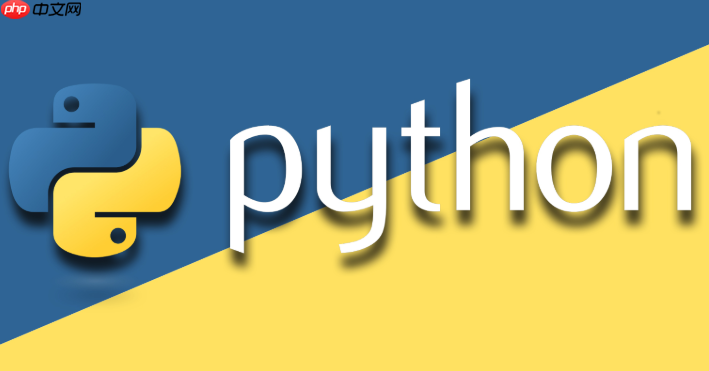析构函数__del__在对象被垃圾回收前调用,用于执行清理操作,如释放资源;其调用时机不确定,不推荐依赖它进行关键资源管理;循环引用或异常可能阻碍其执行;应优先使用with语句和上下文管理器确保资源及时释放;__del__仅可作为最后的安全保障或用于与外部资源交互的场景。

析构函数
__del__
解决方案:
析构函数
__del__
__del__
__del__
__del__
立即学习“Python免费学习笔记(深入)”;
class MyClass:
def __init__(self, name):
self.name = name
print(f"{self.name} 对象已创建")
def __del__(self):
print(f"{self.name} 对象即将被销毁")
# 创建对象
obj1 = MyClass("Object1")
obj2 = MyClass("Object2")
# 删除对象引用
del obj1
del obj2
# 手动触发垃圾回收 (不推荐,仅用于演示)
import gc
gc.collect()在这个例子中,
__del__
del obj1
del obj2
gc.collect()
gc.collect()
__del__
过度依赖
__del__
__del__
__del__
__del__
因此,推荐使用
with
__del__
上下文管理器提供了一种更可靠的资源管理方式。通过实现
__enter__
__exit__
class FileManager:
def __init__(self, filename, mode):
self.filename = filename
self.mode = mode
self.file = None
def __enter__(self):
self.file = open(self.filename, self.mode)
return self.file
def __exit__(self, exc_type, exc_val, exc_tb):
if self.file:
self.file.close()
if exc_type:
print(f"发生异常: {exc_type}, {exc_val}")
return True # 阻止异常传播
# 使用 with 语句
with FileManager("example.txt", "w") as f:
f.write("Hello, World!")
# 文件会自动关闭,即使发生异常在这个例子中,
__enter__
__exit__
__exit__
__exit__
return True
__del__
尽管不推荐过度依赖
__del__
__del__
__del__
总的来说,
__del__
__del__
以上就是Python 面向对象:析构函数 __del__ 的作用的详细内容,更多请关注php中文网其它相关文章!

每个人都需要一台速度更快、更稳定的 PC。随着时间的推移,垃圾文件、旧注册表数据和不必要的后台进程会占用资源并降低性能。幸运的是,许多工具可以让 Windows 保持平稳运行。

Copyright 2014-2025 https://www.php.cn/ All Rights Reserved | php.cn | 湘ICP备2023035733号